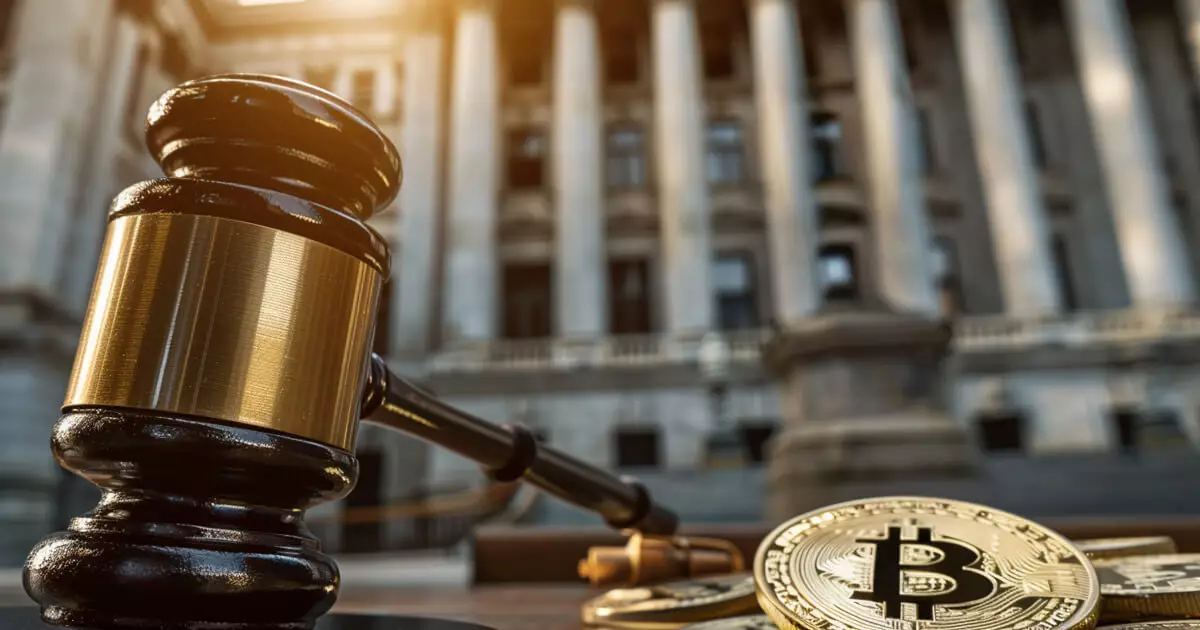In an era where technology is racing ahead of regulation, the Satoshi Action Fund is making significant strides in defining the legal landscape for Bitcoin self-custody. By adopting strategies reminiscent of those employed by the cannabis movement, the Fund is advocating for state-level protections that empower individuals to manage their digital assets without federal interference. With an aggressive approach to establish “safe haven” states for Bitcoin users, the initiative aims to create a supportive legal environment akin to the state-specific protections that have been enacted for cannabis use.
The motivation behind these efforts, articulated by Dennis Porter, CEO and co-founder of the Satoshi Action Fund, is to leverage state laws to secure the rights of Bitcoin holders. Porter believes that the potential for state legislation to preempt federal action provides a unique opportunity to protect Bitcoin users before any nationwide framework is established. While some may argue that federal law supersedes state law in most legal scenarios, Porter emphasizes the emphasis on action at the state level as a catalyst for broader federal recognition.
Drawing analogies between Bitcoin and cannabis, Porter illustrates how state-level strategies have successfully enabled the latter to flourish despite lingering federal prohibition. He paints a picture of how states have taken the initiative to implement laws that protect cannabis possession and usage, leading to a de facto acceptance despite federal disapproval. This historical context serves as a critical pillar of Porter’s argument for similar legal frameworks to support Bitcoin self-custody.
However, skeptics caution against overstating these parallels. Notably, attorney Joe Carlasare critiques the analogy by highlighting the complexities surrounding federal enforcement of cannabis laws versus the emerging landscape of digital assets. Carlasare argues that while possession of cannabis is illegal federally, prosecution has been sparse for small-scale offenses. In contrast, the intricacies of Bitcoin regulation present an entirely different set of challenges.
One notable development in this evolving narrative comes from Pennsylvania, where lawmakers recently passed House Bill 2481, also referred to as the “Bitcoin Rights” bill. This bipartisan legislation is designed to protect the rights of residents to self-custody their digital assets while establishing frameworks for taxation on digital transactions. With a decisive 176-26 vote in the House of Representatives, this bill signals a significant shift toward proactive state-level cryptocurrency regulation.
The implications of this legislation go beyond state lines. By positioning itself as a leader in digital asset advocacy, Pennsylvania is sending a message to other states, encouraging them to adopt similar protections for their residents. This initiative comes at a crucial time, especially in light of the lack of federal clarity surrounding cryptocurrency regulations, as entities like the Securities and Exchange Commission grapple with how to best approach these evolving technologies.
As these state-level initiatives gain momentum, the larger question remains: how will they navigate the complexities of federal supremacy? While Porter believes the federal government cannot lawfully ban the self-custody of Bitcoin, the reality is that legal battles could arise as states push for protections that the federal level may view as encroaching on its authority.
Given that over 1.5 million residents in Pennsylvania reportedly engage with cryptocurrencies, the potential ramifications of House Bill 2481 could shape not only local attitudes towards digital assets but also influence nationwide discourse around Bitcoin regulation. The Satoshi Action Fund envisions that as more states adopt protective legislation, there will be a reciprocal reaction at the federal level, prompting lawmakers to reevaluate their stance on digital asset regulation.
The endeavor to secure state-level protections for Bitcoin self-custody embodies a significant shift in how digital assets are perceived and regulated in the United States. While challenges persist due to the overarching influence of federal law, the groundwork laid by initiatives like the Satoshi Action Fund and Pennsylvania’s Bitcoin Rights bill signals a burgeoning movement toward recognition and clarity in cryptocurrency regulations. As advocates strive to solidify these protections, the outcome of their efforts will undoubtedly shape the future landscape of Bitcoin policy and usage in the years to come.


Leave a Reply